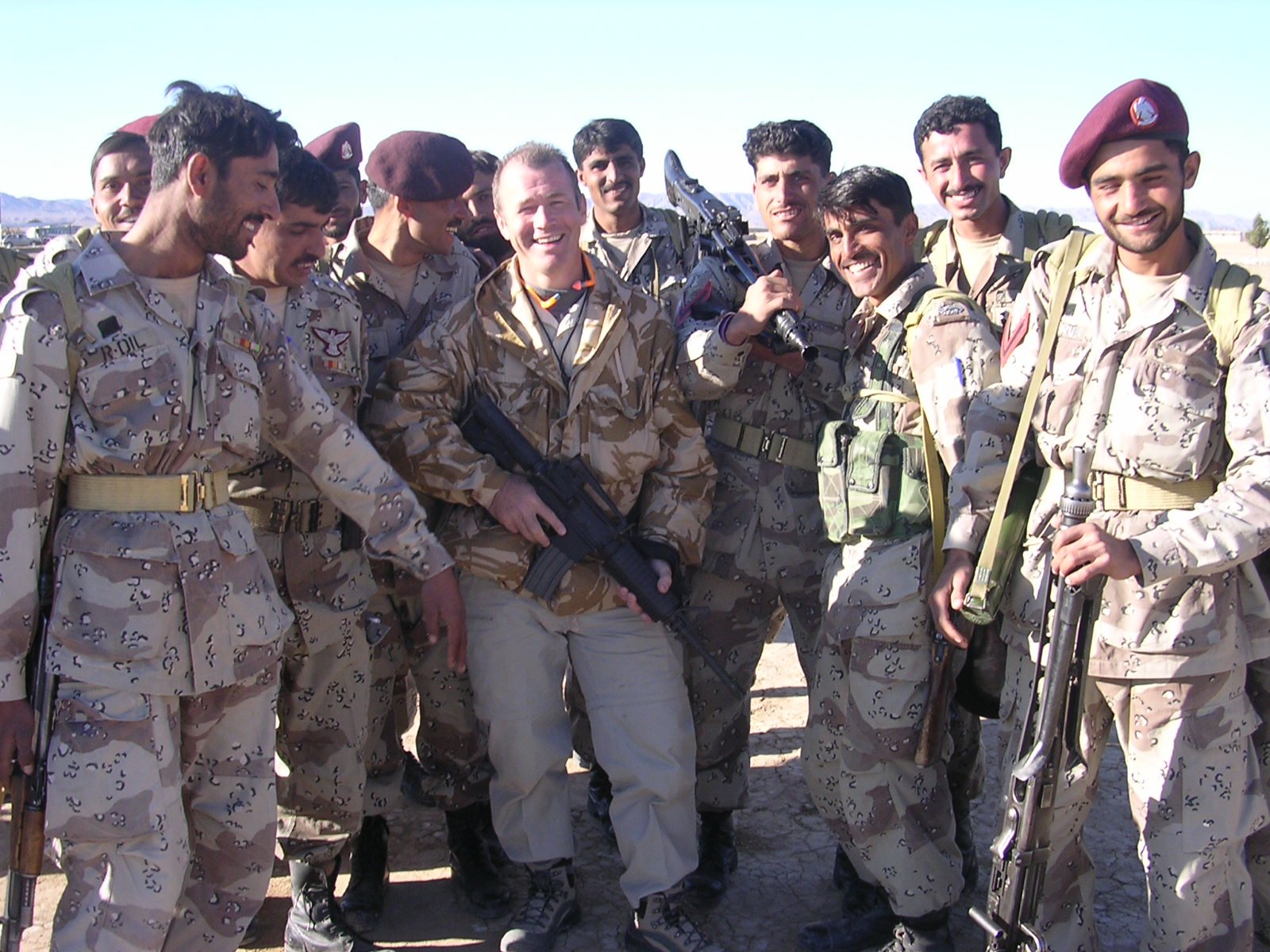
Former British special forces officer Howard Leedham with members of the Pakistani Frontier Corp’s Heliborne Assault Force. Photo courtesy of Howard Leedham.
At first light on a quiet morning in March, Howard Leedham found himself crouching near an austere compound in a hilly area near the unremarkable village of Ziarat, typical of this part of Pakistan’s impoverished and lawless Balochistan province. With him were dozens of heavily armed members of the Heliborne Assault Force (HAF) of the Pakistani Frontier Corps.
The target: Jalil Jaffar, better known as JJ, a notorious militant wanted for kidnapping 15 civilians from a bus several weeks prior. Two of the women taken had already been murdered by JJ, who was demanding the release of members of his gang. This was in 2004, at the tail end of winter in Balochistan.
With the assault force and supporting light machine guns in place, a Pakistani captain called out on a loudspeaker for JJ and several members of his gang to surrender, only to be met with gunfire. After the machine guns lit up a wall that had protected JJ, he took a gamble and made a run for it.
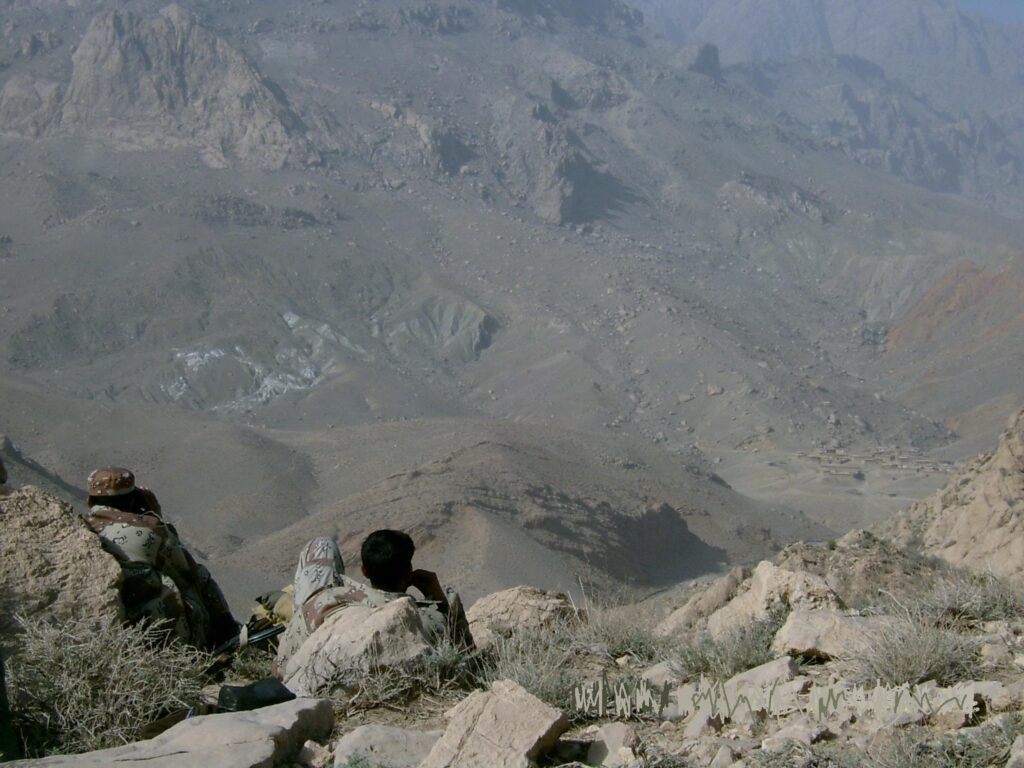
It was the last thing he’d ever do.
“The guys decided to bunk out the back and came out armed. JJ was in the first group,” Leedham recalled, speaking over a Zoom call from the U.K. “Unfortunately for him, he reached a cut-off group before the others. They challenged him, but he fired at them. They killed him and the bloke he was with as well.”
Two other nearby militants heard the gunfire and were taken into custody, their clothes soaked in urine.
Howard Leedham and the HAF’s part in the Global War on Terrorism was off to a running start.
Leedham, a dual U.S. and U.K. citizen, was in Pakistan as part of a $65 million State Department-backed program that partnered Bell Huey helicopter and Cessa Caravan aircraft with two contract pilots, half a dozen mechanics, Pakistani aircrew, and 25 Pathan soldiers tasked with helping secure the Afghan-Pakistan border and make life difficult for the Taliban, Al Qaeda, and local drug barons.
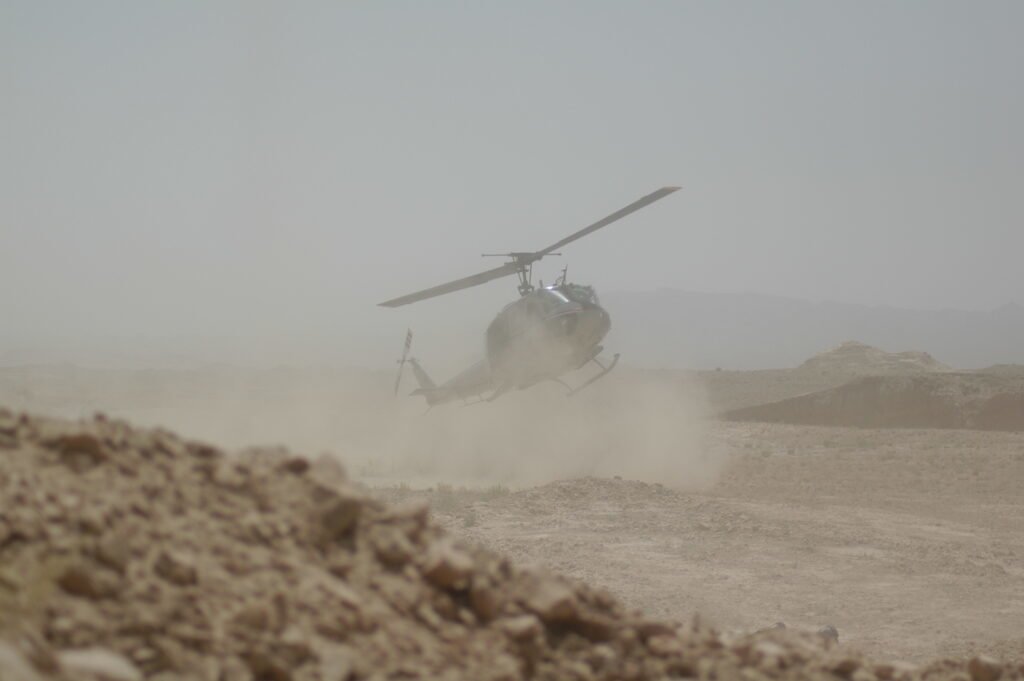
Just a few years before, Leedham was living in Maryland and working in the high-flying world of executive aviation. His background, however, was anything but typical in the world of Learjets.
A former Royal Navy clearance diver, Leedham had gone on to be a helicopter pilot, and was the first British exchange officer to take temporary command of a U.S. Marine Corps helicopter squadron (HMT 204). He’d also served his time in the secretive world of British special operations before leaving the military in 1997.
His path to Pakistan began when a Washington-area acquaintance put him in touch with the State Department, who at the time was seeking advice on how to retrieve a number of U.S. contractors that had crash-landed and been captured by guerrillas in the Colombian jungle in February 2003.
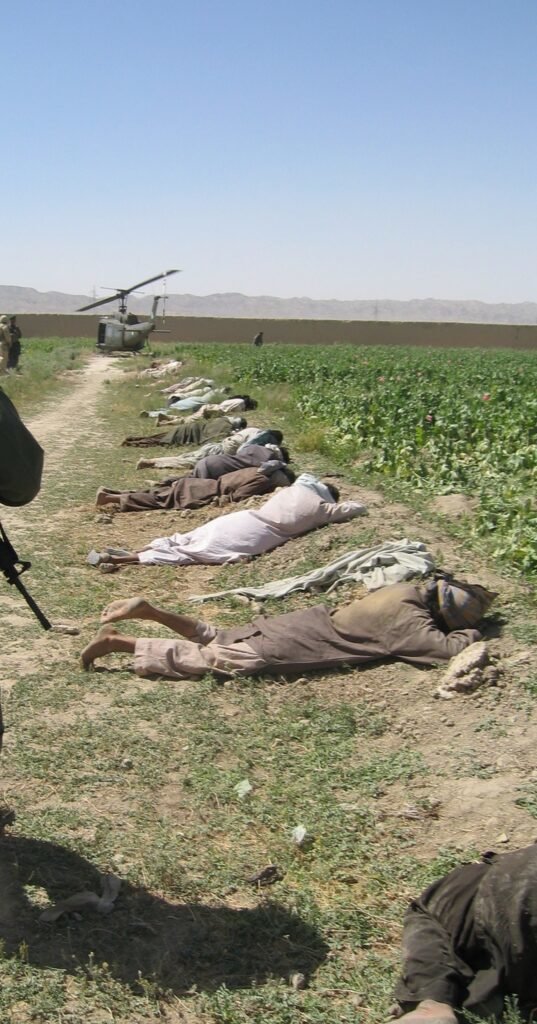
“They told me later that if they could get me in a room and poring over a map of Pakistan, they’d have me,” he said of the State Department’s Air Wing. “I amicably left my job and began a training package that included weapons and aircraft certification. By that time I was an American citizen, but the security clearance is what took the longest.”
The State Department Air Wing’s operation in Pakistan was typical of the kind they run elsewhere around the globe. The programs provide air assets and funds to a local partner force trained to carry out law enforcement and counter-narcotics missions, as has long been the case in Latin American countries such as Colombia and Peru.
The Pakistan operation, however, had a rocky start, partly as a result of an often-hostile relationship between the U.S. embassy in Islamabad and Pakistan’s Ministry of Interior.
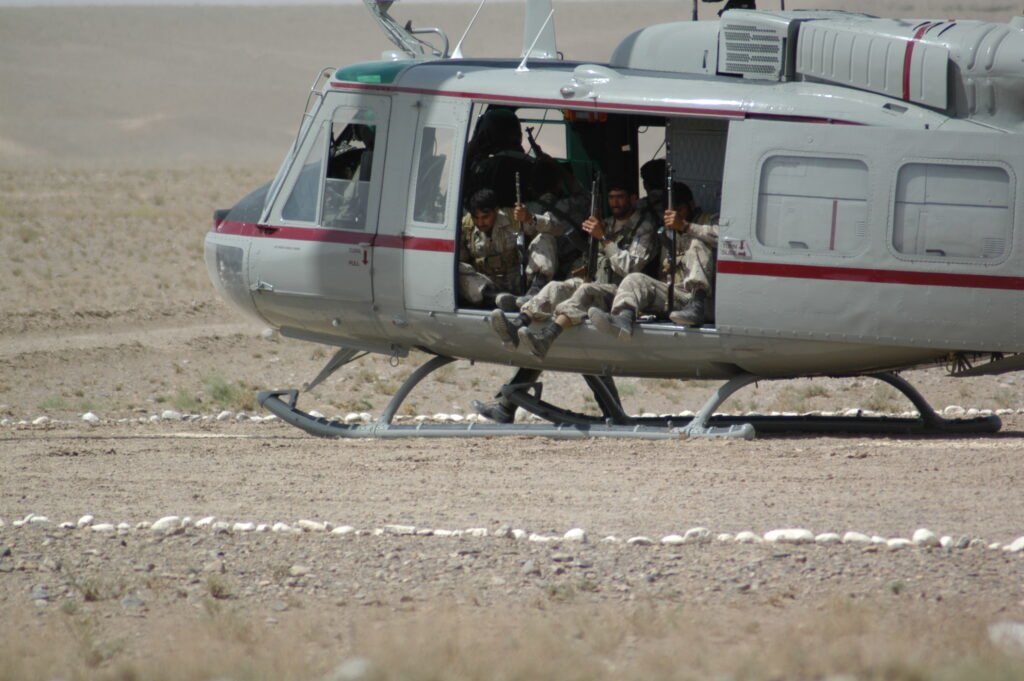
“Shortly before I deployed, the aircraft were seized by the Pakistanis and impounded. There was a big argument between the embassy and them on who should have control over the aircraft,” Leedham said. “The Americans didn’t want to hand them over carte-blanche control.”
Just as bad was Leedham’s relationship with his supervisor in the embassy, whom he described as a “dove in the extreme” and as “extremely unsuited” to the role.
“The very first time I met her, she handed me a memo recommending that the whole program be shut down,” he said. “They said it was a complete failure because the Pakistanis wouldn’t cooperate.”
Leedham, however, managed to convince the Pakistanis to release the aircraft. Additionally, he convinced a Pakistani colonel — by pleading through a toilet door — to commit a ground force, which began with 25 members of the Frontier Corps Rapid Interdiction Force, or RIF.
“[…] no American should be flying over any territory in any of our aircraft, which were all single engine, unless they were armed.”
The program’s relationship with the embassy, however, continued to prove tricky.
“Our biggest problem from the State Department side was getting the embassy to release weapons to use. They were pacifists and shit-scared,” he recalled. “One of them told me she didn’t want me carrying a weapon in case I kill a kid. The only way I’d kill a kid was if he was going to shoot me.”
“My argument was that no American should be flying over any territory in any of our aircraft, which were all single engine, unless they were armed,” he continued. “If they go down, they’re going to have to do a runner and at some stage probably defend themselves. A weapon buys you three things: time, space, and respect. If you don’t have one, you haven’t got any of them.”
Eventually, the embassy was overruled by the Regional Security Office (RSO), Capitol Hill, and senior State Department figures in Washington, who arranged for more weapons to be provided from the U.S. Still, the episode left Leedham and the other members of the team with a bad taste in their mouths.
“It was a bizarre issue you’d never think to have to deal with in the post-9/11 era,” he said.
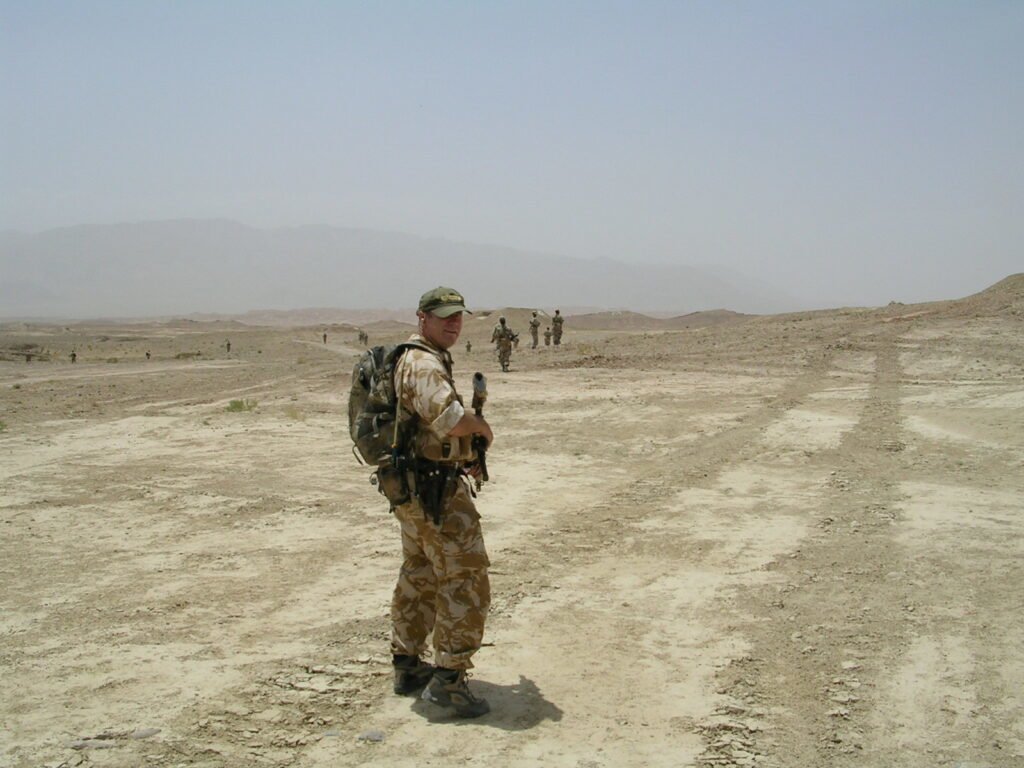
With the Hueys and Cessnas operational and with weapons provided, Leedham was ready to begin training the Frontier Corps ground force. They operated out of a spartan military cantonment in Quetta, the Pakistani city that also hosted Mullah Omar and the rest of the Taliban’s senior Shura.
The area, Leedham said, was “pretty frantic.”
“The Taliban were running across the [Afghan] border and doing whatever they were going to do, and coming back to Pakistan and taking a big sigh of relief,” he said of the enemy situation at the time. “The other aspect was the narcotics, which was paying for everything on their side.”
At the time, approximately 80 percent of the heroin detected in Europe was produced from Afghan opium poppies, processed in border labs, and transported through Balochistan.
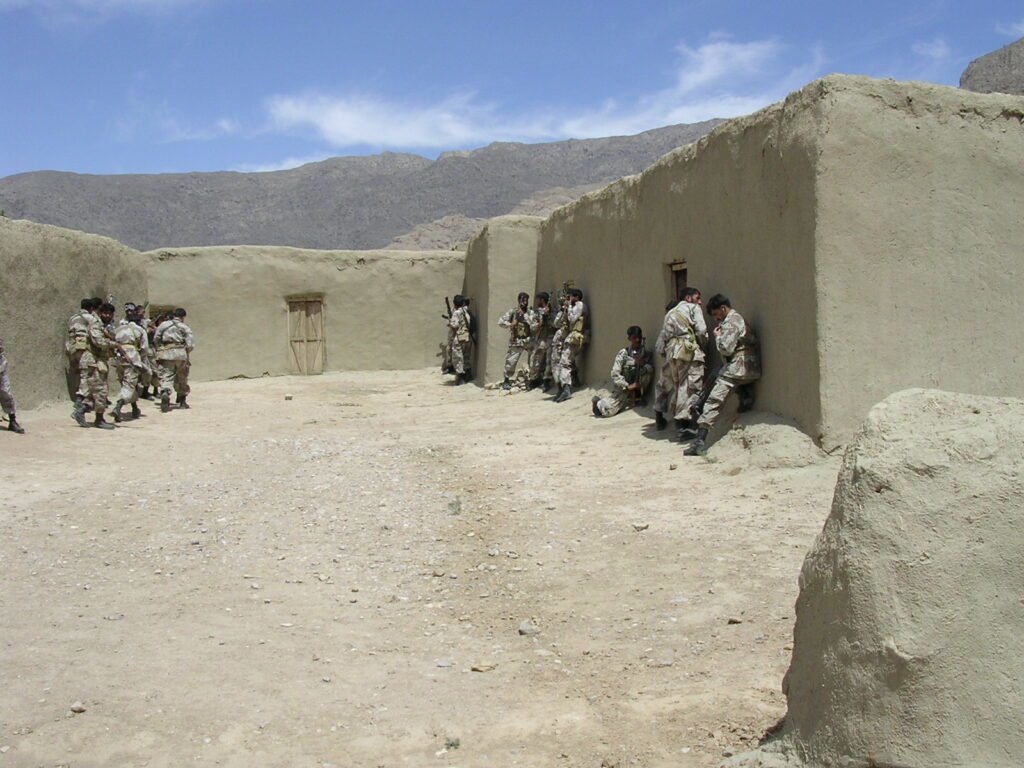
In this environment, Leedham and the other U.S. contractors on the program could never be sure who to trust — including, at first, their own team members.
The threat of a green-on-blue insider shooting, he recalled, was always in the back of his mind, starting with his first time seeing the troops in formation in Quetta.
“I don’t want to make it sound too dramatic, but at the beginning it was a hideous concern,” he said. “You could see they were quite formidable blokes. It could go pear-shaped very quickly if one of them decides to have a ‘Jihadi moment.’”
“I always carried a concealed weapon,” he added. “Even when I was chatting to them or giving them lecture, I always had a pistol down my pants. When we did CQB [close-quarters battle] drills, I’d have my pistol out. I wasn’t sure of one or two individuals, but those concerns were unfounded.”
“The clock was running. If I’d stayed there long enough, my luck would have run out.”
Even at the force’s base in Quetta, Leedham said he slept with a pistol under his pillow, a shotgun and an AR-15 close at hand.
“If anybody burst in, I could at least grab something,” he said.
Leedham’s concerns about the force were unfounded, and after a training program was completed, the force was declared operational in early 2004. The successful raid on JJ’s compound took place several weeks later, giving both the Pakistanis and the State Department confidence.
Leedham said that the HAF’s missions were varied. Sometimes the air assets on the force were committed to operations against poppy growers, while other times the force infiltrated areas of concern to conduct reconnaissance and “have a look around.”
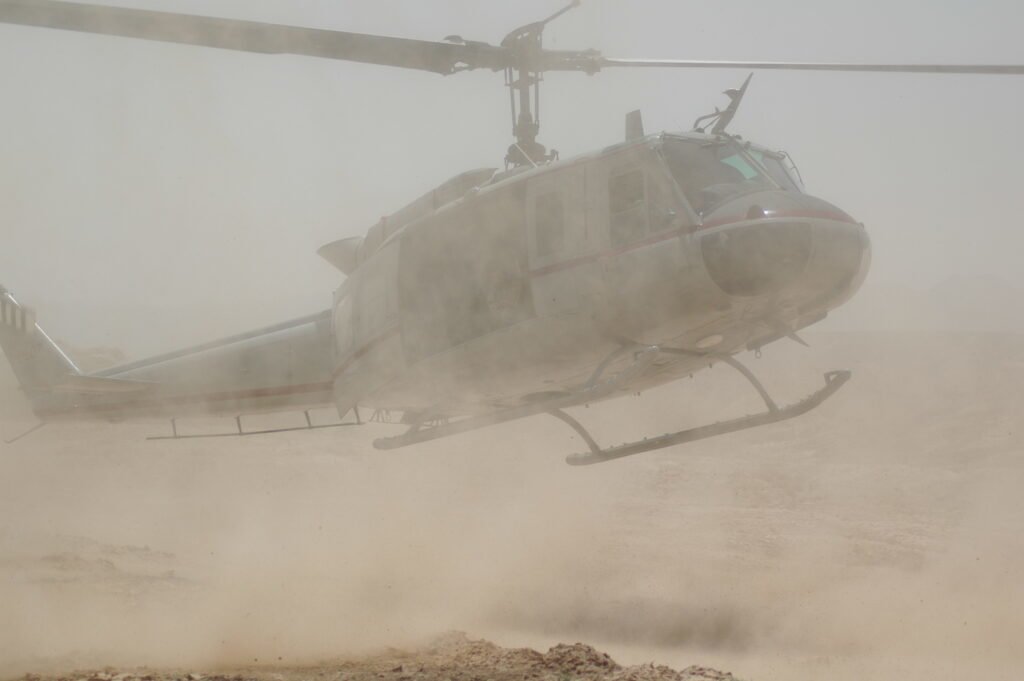
Some of their most typical missions, however, were setting up snap vehicle checkpoints in broad daylight.
In these missions, a road would be picked — with no specific intelligence — and a heli-borne force dropped off at least 5 kilometers (3.1 miles) away. Under the cover of darkness, the force would then approach the road and set up a checkpoint the following morning.
Each checkpoint, Leedham recalled, involved multiple layers of HAF personnel and tire spikes, as well as unseen cut-off points and light machine guns.
“They’d have driven in and be totally cut off. There was nowhere to go,” Leedham said. “The whole idea was not really to find anything. We’d be shot to shit if we did. The idea was that word would get around very quickly.”
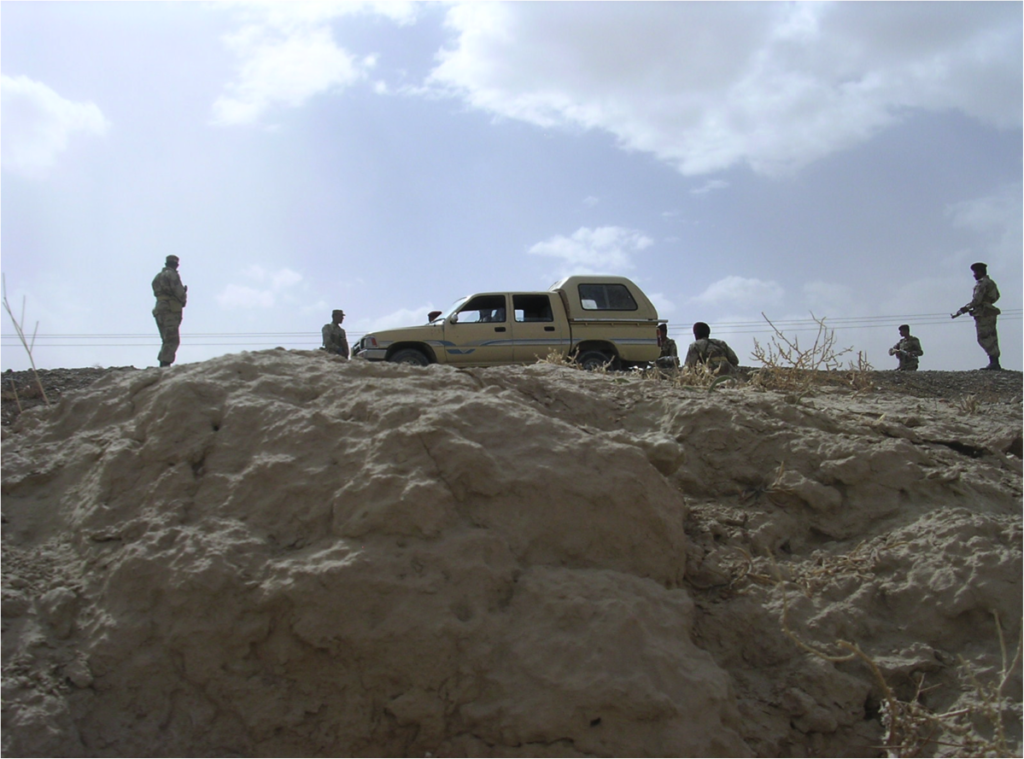
Once word got out, the thinking went, the Taliban and drug traffickers would have to adjust their operations.
“The whole premise of it was that it would slow down their op tempo. They’d have to send lead vehicles to make sure we weren’t there,” he said. “We weren’t where we were, and we were where we weren’t.”
While Leedham said that the HAF was largely successful in “putting a dent” into the operations of the Taliban and drug barons during his tenure in Pakistan, he ultimately decided not to renew his contract, despite being asked by the State Department.
For one, he said that there had been a number of close calls. On one occasion, for example, a force of approximately 200 gunmen ambushed a Pakistani patrol on the border they mistakenly believed Leedham was a part of.
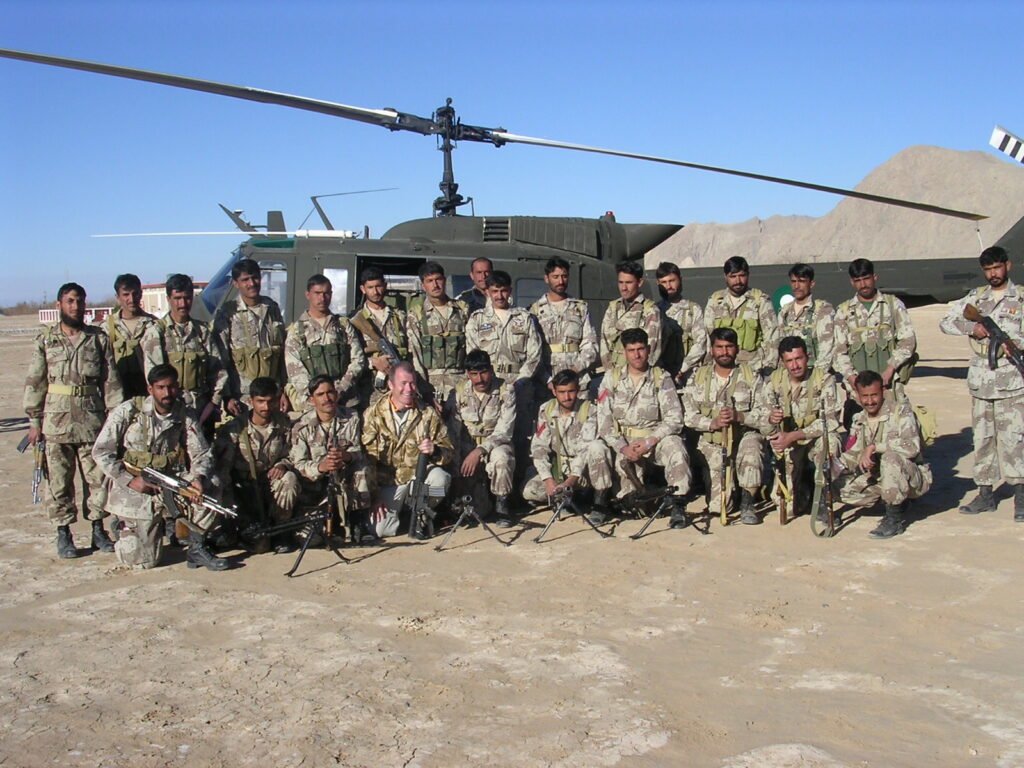
On another, notorious Baluch warlord Akbar Bugti planned a concerted effort to down Leedham’s Cessna after successfully compromising the HAF. Pakistani forces tracked Bugti down to a cave 150km (about 93 miles) from Quetta and killed him in August 2006.
“The clock was running,” Leedham said. “If I’d stayed there long enough, my luck would have run out.”
While the program continued for some time after Leedham’s departure, he believes it lost effectiveness over time — and, in his opinion, it’s no mystery why.
“The way these U.S. contracts work, at the PSC [personal services contract] level is that they are graded on civil service pay grades. You’ve got a $65 million project, and they’re trying to recruit someone to do the job for $80,000,” he said.
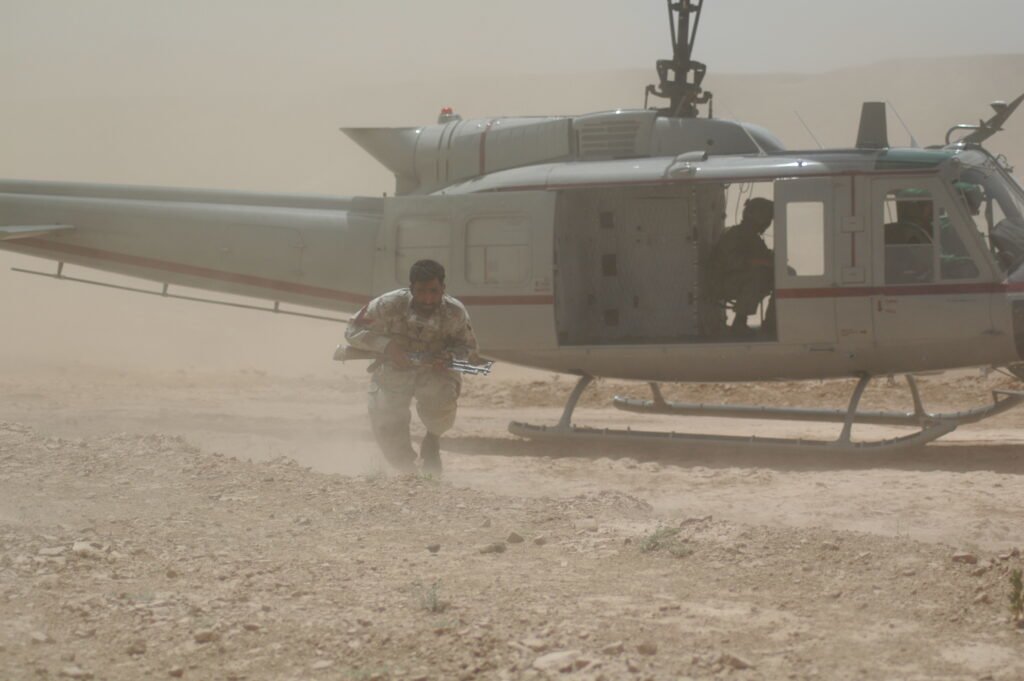
“A guy who left Special Forces and is worth his salt is going to get paid far more than that for doing less, with less responsibility, paperwork, and bullshit,” Leedham added. “Why would somebody do that?”
While Leedham acknowledged that he managed to negotiate better compensation, he wasn’t willing to continue to do it for anything less than a percentage of the contract, rather than a PSC salary.
“But I didn’t do it for the money. It was post 9/11,” he said. “I did it because I came to the conclusion that if I didn’t do it, I’d one day be sitting in a rocking chair and I didn’t.”
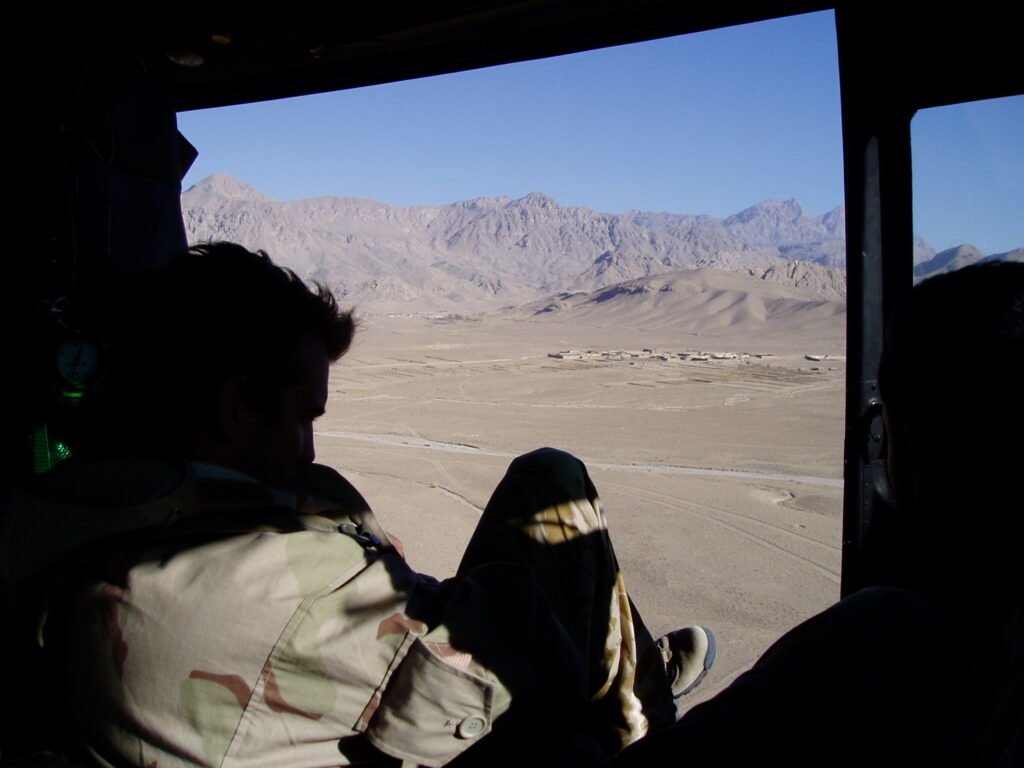
However, the job came at a personal cost: his marriage and family quickly fell apart on his return to the U.S., the result of a difficult domestic crisis he attributes to him leaving for Pakistan.
In the years after his part in the operation ended, Leedham went on to work in the Middle East’s high-dollar finance industry, a far cry from the wilds of Pakistan’s badlands. He now heads up a firm that offers global security consulting and risk management services. He also wrote a book about his experience, “Ask Forgiveness, Not Permission.”
Despite the close calls, maddening battles against militants and the U.S. bureaucracy, and personal toll, Leedham said he’d do it all over again.
“I think I would. You couldn’t not,” he said with a smile. “It was the adventure of a lifetime.”
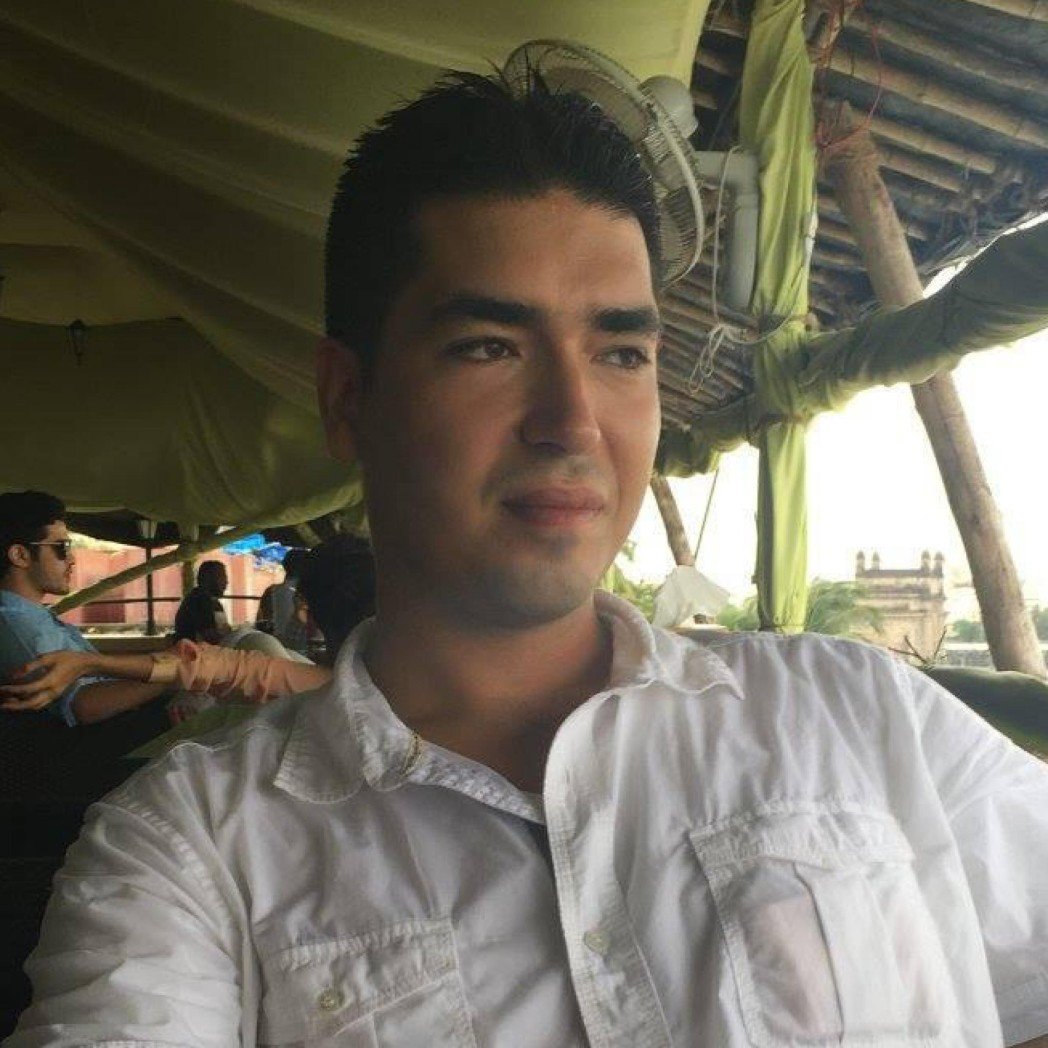
Bernd Debusmann Jr. is a Middle East-based journalist and writer. Prior to moving to the Arabian Gulf, he spent several years at Reuters News in TV and print in Mexico City, New York City, and Washington, D.C., reporting on everything from border issues and drug trafficking to art fraud and mob trials. His work has also appeared in The Daily Telegraph, Fox News, War is Boring, and elsewhere.
BRCC and Bad Moon Print Press team up for an exclusive, limited-edition T-shirt design!
BRCC partners with Team Room Design for an exclusive T-shirt release!
Thirty Seconds Out has partnered with BRCC for an exclusive shirt design invoking the God of Winter.
Lucas O'Hara of Grizzly Forge has teamed up with BRCC for a badass, exclusive Shirt Club T-shirt design featuring his most popular knife and tiomahawk.
Coffee or Die sits down with one of the graphic designers behind Black Rifle Coffee's signature look and vibe.
Biden will award the Medal of Honor to a Vietnam War Army helicopter pilot who risked his life to save a reconnaissance team from almost certain death.
Ever wonder how much Jack Mandaville would f*ck sh*t up if he went back in time? The American Revolution didn't even see him coming.
A nearly 200-year-old West Point time capsule that at first appeared to yield little more than dust contains hidden treasure, the US Military Academy said.












